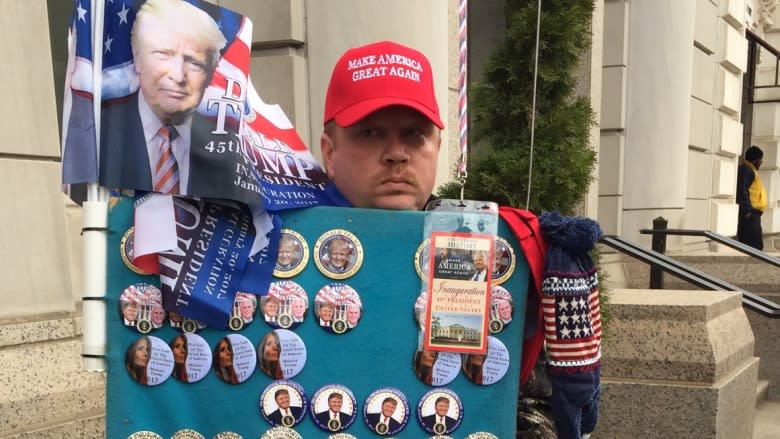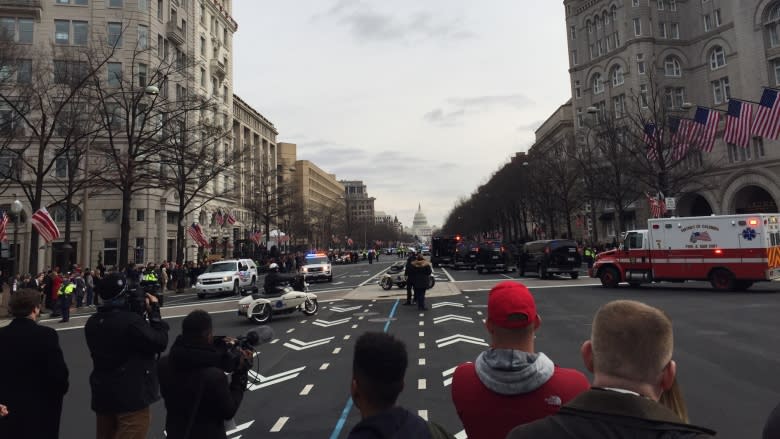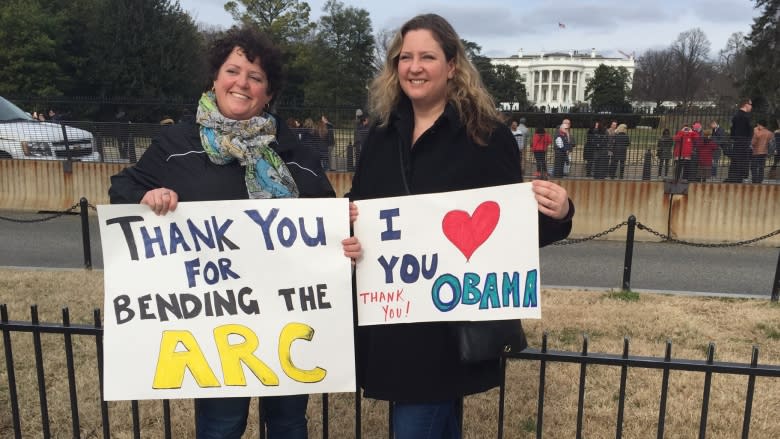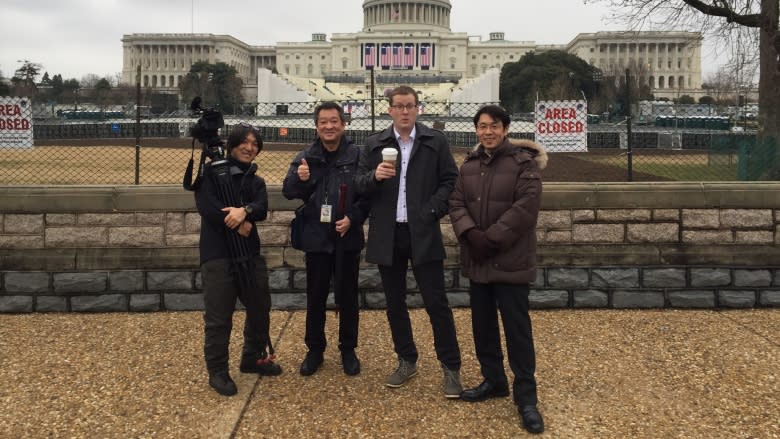Watching the inauguration in the divided states of America
The noose of security is gradually tightening as the week progresses. Everywhere you look, there are police, secret service officers, K-9 units and groups of people in plain clothes with short haircuts and walkie-talkies or ear pieces.
I'm on an assignment in Washington D.C., and while in a way it is close to home in St. John's, it feels so far removed.
My job for the week is to produce coverage of the Donald Trump inauguration for the Japanese national broadcaster NHK's English service. For the last year, these have been my colleagues in Tokyo.
So the lens I'm seeing things through is an Asia-Pacific one.
Tensions in the region are rising and there are more question marks around this president than there are answers at the moment.
On Monday we sat down with a former deputy national security advisor for Dick Cheney, who had been vice-president in the last Bush administration. He's also an unofficial advisor for the Trump team.
Expect the unexpected
The takeaway I got from the interview was to expect the unexpected, and that everything is up for renegotiation.
There is nothing that isn't being looked at for possible change — trade, military alliance deals, anything that's been tradition or the status quo may not stay that way. Some of what Trump has tweeted or said already is ruffling feathers and causing concern in my neck of the woods.
I'm working in a part of the world where China is building up its military and asserting itself more territorially. Then there's the increasingly belligerent North Korea which is keen on being a nuclear power and regularly lobs test ballistic missiles into the Sea of Japan.
There's also the fact that northeast Asian nations don't really like each other - part of the hangover from some pretty horrible things that happened in the first half of the century.
To put it mildly, it's an interesting time to be reporting from Asia and the Trump card is changing the game.
Changing times
Being in the capital city of the world's superpower for this event is a bit mind blowing. Besides being impressed by the monuments, giant food portions and patriotism, I've had the opportunity to talk with Americans about the change of power.
Speaking with people here on the ground is reinforcing what I've seen in US media, that there's a bitter divide between those who want Trump to "Make America Great Again" and those who would have signed up for four more years of Barack Obama's "Hope and Change" if it had been an option.
I met a young Republican woman who says she lost a friend because of her choice to to support Trump.
I've spoken to women who will be part of the Women's March on Washington on Saturday. They told me Hillary Clinton's loss left them feeling hopeless and that Saturday is about sending a message to the new president about the need to preserve rights for everyone, and that there will be a watchdog over his administration.
A subdued tone
A doorman told me the mood is so different from eight years ago when this place was one big Obama party. He said this year things are subdued. A town whose residents are way more Democrat than Republican is kind of going through the motions.
Earlier in the week, a man even tried to set himself on fire outside the Trump Hotel. According to media reports, it was in protest of the election results. He was taken to hospital for treatment.
And then there was a waiter who told me everything would be OK. He's an elderly Greek gentleman and told me he knows what dictators are like firsthand. He said Trump is no dictator and that while people are worried, life will continue.
His worry, though, is that at his age, trips to the doctor are becoming more frequent and his health insurance deductible is $1,500.
I leave to head back to Tokyo on Saturday, which is Trump's first full day in office.
I've spent much of this week wondering what the next four years will bring and what the new president's definition of "Make America Great Again" will mean for the rest of us.












